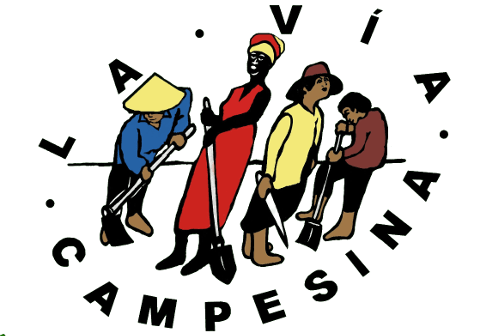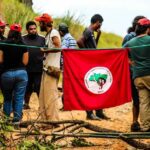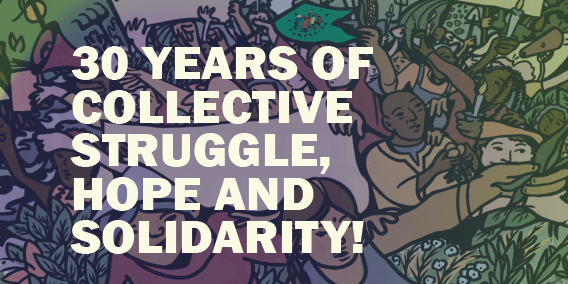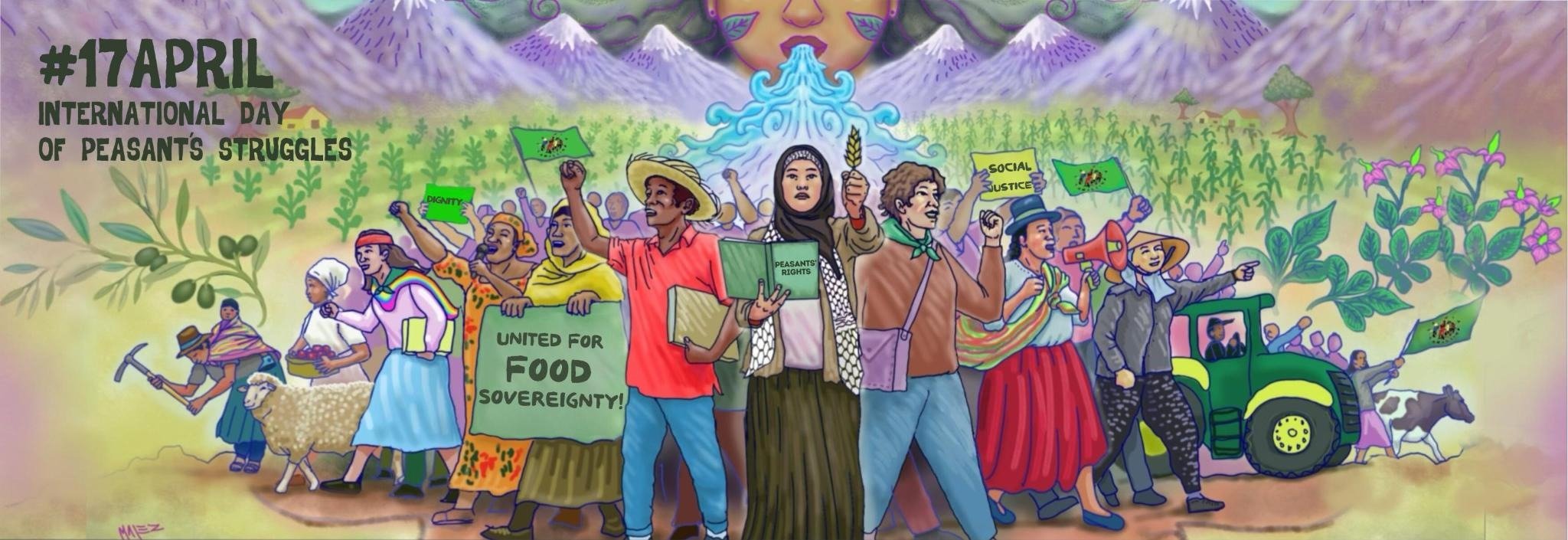Position paper
La Via Campesina–a global movement of peasants, small-scale farmers, indigenous people, landless, women’s and rural workers’ organizations–demands genuine, integrated agrarian reform.
Genuine agrarian reform ensures that those who work and live on the land secure tenure, access to, and control of the land and to the resources necessary for a dignified livelihood. Integrated agrarian reform encompasses a cosmic vision of territory, space, water, biodiversity and natural resources in order to establish harmony between human beings and Mother Nature.
In the face of growing rural poverty, the large-scale and often brutal displacement of people from the land, the exclusion of people from the land, an alarming degradation of natural resources and loss of the biodiversity that is vital for human survival, La Via Campesina proposes an alternative to the destruction and injustice of the current neo-liberal model promoted by, among others, agribusiness and the World Bank through its concept of market-assisted land reform.
Agrarian reform must be based on the following principles:
· Those who work and live on the land have the right to land, water, forests and the resources required to live there with dignity and security.
· Indigenous peoples have a right to their ancestral land and territories.
· All people have a right to produce their own food that is ecologically and culturally appropriate, basic elements of food sovereignty.
· The earth and its resources are for all humanity – not commodities owned by the few who own and control the capitalist market. Land has a social function.
· Land, seeds, water, maritime resources and biodiversity must be loved and protected, not exploited, degraded and destroyed. These are rightfully the resources of local communities.
· The right to appropriate technology is fundamental.
Genuine agrarian reform will achieve the following objectives:
· The redistribution of large landholdings to landless peasants and those who rightfully claim it for their survival and development.
· Equal access to and use of land for women and youth. Justice and equality for women, which requires the transformation of social and economic arrangements, including access to land, credit, education, social benefits and power, is a key part of family food security.
· Inclusion of all those who participate in food production and care of natural resources – fisherfolk, indigenous peoples, landless workers, pastoralists and forest dwellers.
· Protection of water, its sources, rivers and lakes, and an immediate halt to the privatization and marketing of water.
· Reorganization of the marketplace to give priority to local markets for food. Neo-liberal trade agreements and economic structures that are destroying the economic base of small-scale producers have to be scrapped and replaced with policies that ensure a fair price for products and the democratization of the means of production through cooperatives, social ownership and/or family farm agriculture.
· Recognition that the accumulated experience and knowledge of peasants in using local resources (traditional peasant agricultures) is invaluable so conditions must be created to ensure that these models can flourish.
The struggle for genuine, integrated agrarian reform is the struggle for justice, dignity and an end to rural poverty. It is a struggle for a new kind of rural development that is not only economic and technological but also respects and enhances rural cultures.
Globalize the Struggle! Globalize Hope!
Porto Alegre, 4 March 2006







